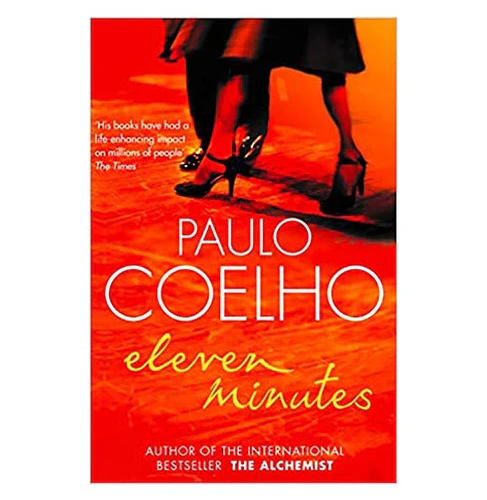When Paulo Coelho published Eleven Minutes in 2003, the Brazilian author known worldwide for The Alchemist startled his readers. Gone was the allegorical shepherd chasing destiny; in his place came Maria, a young woman from a Brazilian village whose journey through love, sex, and self-discovery tested cultural taboos and literary expectations alike.
The title itself refers to the average duration of the sexual act, but the novel reaches far beyond mechanics. In telling Maria’s story — from a small town in Brazil to Geneva, where she becomes a sex worker — Coelho asks blunt questions: What is love? What is desire? Can physical intimacy and spiritual transcendence coexist?
Maria, dreaming of fame and fortune, moves abroad only to face exploitation. Eventually she chooses sex work as a means of survival, navigating the delicate line between her body as a commodity and her heart as her own. Along the way, she meets Ralf, a painter who sees her not as an object but as a soul in search of light. Their relationship becomes the axis on which the novel turns, forcing Maria to confront her deepest fears — of being unloved, of losing herself, of surrendering to real intimacy.
For Coelho, who had built his reputation on fables of faith and destiny, the subject matter was audacious. Critics at the time were divided. Some praised the courage of addressing female sexuality with openness, while others accused the author of oversimplifying complex realities.
Yet, as with his earlier works, Coelho wrapped his narrative in parable-like simplicity, layering philosophical reflections over everyday scenes. “When we love, we always strive to become better than we are,” he writes — a line as easily traced to Maria’s brothel encounters as to Santiago’s desert quest in The Alchemist.
The novel quickly became an international bestseller, translated into dozens of languages. Readers — particularly women — found Maria’s inner voice compelling. Her questions about pleasure, morality, and the meaning of love struck chords across cultures.
However, detractors pointed out that the book risked romanticising sex work and flattening the gritty realities of exploitation. “It’s a fairy tale wrapped in a provocative setting,” one European critic observed, “more about Coelho’s philosophy than Maria’s reality.”
Two decades on, Eleven Minutes continues to be read in book clubs and classrooms, often sparking debate. For admirers, it stands as one of Coelho’s most daring attempts to fuse the erotic with the spiritual. For skeptics, it remains proof of the author’s tendency to simplify life’s darkest corners into digestible parables.
Still, the questions it poses linger: is sex merely eleven minutes of sensation, or can it be a portal to understanding love, pain, and the human spirit?

